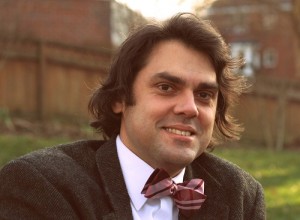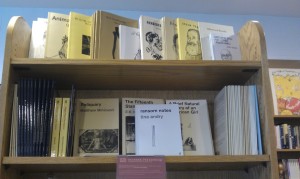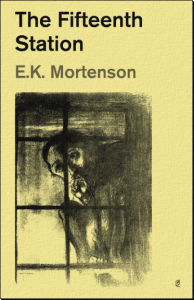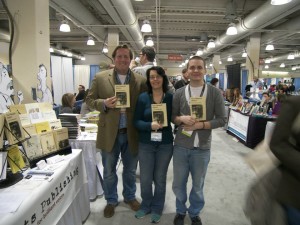 Reluctant to explain his own poetry, Jeremy Paden says, “It’s one reading of a text by a flawed reader, even if the text is mine.” This awareness of his own work, and poetry in general, is what makes Broken Tulips so strong.
Reluctant to explain his own poetry, Jeremy Paden says, “It’s one reading of a text by a flawed reader, even if the text is mine.” This awareness of his own work, and poetry in general, is what makes Broken Tulips so strong.
To quote Cecilia Woloch, author of Carpathia:
“In Jeremy Paden’s work, a finely-tuned intellect and a capacious heart join forces, so that precision and craft are brought to bear on a gorgeous lyrical extravagance, giving us poems that are at once graceful and surprising, unabashedly romantic and unashamedly erudite, sensual and sharp, flowers growing from cracks in stone.”
Accents’ own Christopher McCurry interviewed Paden in February for Public Republic, a Bulgarian Multimedia Art Journal. Aside from his book, Jeremy Paden discusses his life growing up in “the global south” of Central America and the Caribbean (“it’s a complicated story”). He talks about his membership in the Affrilachian Poets, a group “embracing the concept that Appalachia plays host to a spectrum of racial and cultural identity.” (source) In the interview, Paden says:
To admit that I am white, to claim white on census data, in my case is not an instance of passing, not anymore. Instead, it is to admit that I was raised white.
To claim anything else would [be] dishonest. To presume that I could make strong claims to either heritage, regardless of bloodlines, would, I think betray my Native and Puerto Rican brothers and sisters who have not been given the same advantages that I have. […] I grew up in countries that have a long history of colonization by Europe and the U.S.. This too is part of who I am and how I understand the world.
While Paden’s diverse background plays a role in his poetry, he focuses more heavily on love, fear, and our relationships, not only to each other, but to stories as well. With allusions to historical events and literary works, Paden paints a portrait of desire in a world that is—according to Maurice Manning—“indifferent or falling apart”. The world of Broken Tulips is “a violent world”. “We live in a world where lovers are often not in sync, where confusion and hurt are a daily part of our relationships, romantic or otherwise, and love, and mercy, and forgiveness are needed by all.”
In the interview, Paden contemplates strongly on his work ethic and particular method.
Normally a poem begins with me sitting down and writing. It’s rather a banal and a decidedly unromantic notion. I will, at times, have a vague idea of what I want to write about, a phrase, an image, an idea, an emotion. Once I get around to writing, though, I have always found to be true E. L. Doctorow’s statement “writing is like driving at night in the fog.
You can only see as far as your headlights, but you can make the whole trip that way.” I don’t know what or how I am going to say anything until I’ve written it, and then rewritten it. Sometimes I will write an entire poem in one sitting. Sometimes I will proceed painfully through the poem adding a line here and taking one out there and over a period of days a poem will get written, unless it peters out.
Paden’s literary Ph.D. shines through as he debates his use of an epigraph by Nicholson Baker (“Poetry is a controlled refinement of Sobbing”) with Orhan Pamuk’s argument against epigraphs (“Never use epigraphs; they kill the mystery of the work!”). One might assume such knowledge comes with a hefty baggage of pretense, but Paden serves the work first and foremost, such as in “The Psalms of Michal: A Broken Crown”.
Even though the story of David and King Saul “is about power and male ego and possession and the violence of men against women”, the poem simply tells the tale from Michal’s perspective. Citing Borges, Paden says “even if we try our hardest not to update these stories, they are changed simply by the accident of time.”
For the full interview from Public Republic, click here.
Broken Tulips is currently available from Accents Publishing. Jeremy Dae Paden was born in Italy and raised in Central America and the Caribbean. He received his Ph.D. in Latin American literature from Emory. His poems have appeared in such places as the Atlanta Review, Beloit Poetry Journal, Cortland Review, Louisville Review, Naugatuck River Review, pluck! and Rattle, among other journals and anthologies. This is his first published collection of poems. He is an associate professor of Spanish and Latin American literature at Transylvania University in Lexington, Kentucky and a member of the Affrilachian Poets.
Unless otherwise noted, all quotes come from Accents’ own Chris McCurry’s interview with Jeremy Paden at Public Republic, except for Cecelia Woloch’s, whose quote is used on the jacket cover for Broken Tulips.



